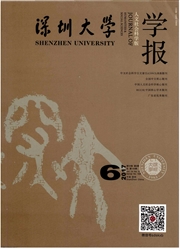

 中文摘要:
中文摘要:
社会成员的价值观体系来自于并反映了所处社会环境中的主要变化,所以,文化价值观在世代传承的同时也在人们的无意识中发生着嬗变。我们把中国主流消费群划分为4个世代,采用Schwartz价值观量表设计问卷,在全国7个城市收集了910个社会样本。实证研究结果表明:集体主义价值的代际传承与个人主义价值的代际嬗变是两条并行不悖的轨迹;性别和学历两个变量在集体主义价值和个人主义价值的代际传承与嬗变过程中都没有产生调节性影响;收入没有影响到价值观的代际传承但却影响到代际嬗变。研究结论对企业在世代行销活动中从文化价值观的视角实施品牌定位、制定差异化营销战略等管理实践有着重要的管理意涵。
 英文摘要:
英文摘要:
Researches on consumers' cultural values can be classified both horizontally and longitudinally.However,there are very few longitudinal studies on the cultural values of mainstream Chinese consumers.In this research,mainstream Chinese consumers are divided into four generations,and questionnaires based on the Schwartz Values Survey are issued to collect 910 samples of adult consumers in seven Chinese cities.The results showed that the inter-generational transfer of collectivism and the inter-generational transmutation of individualism co-exist in the contemporary Chinese society,and that statistical variables such as gender and personal education have no effect on the inter-generational transfer of collectivism or on the inter-generational transmutation of individualism,whereas the variable of income has some effect on the inter-generational transmutation of values,but no effect on their transfer.The research findings have significant implications for brand positioning and the implementation of differentiated marketing strategies in generation marketing from the perspective of cultural values.
 同期刊论文项目
同期刊论文项目
 同项目期刊论文
同项目期刊论文
 期刊信息
期刊信息
